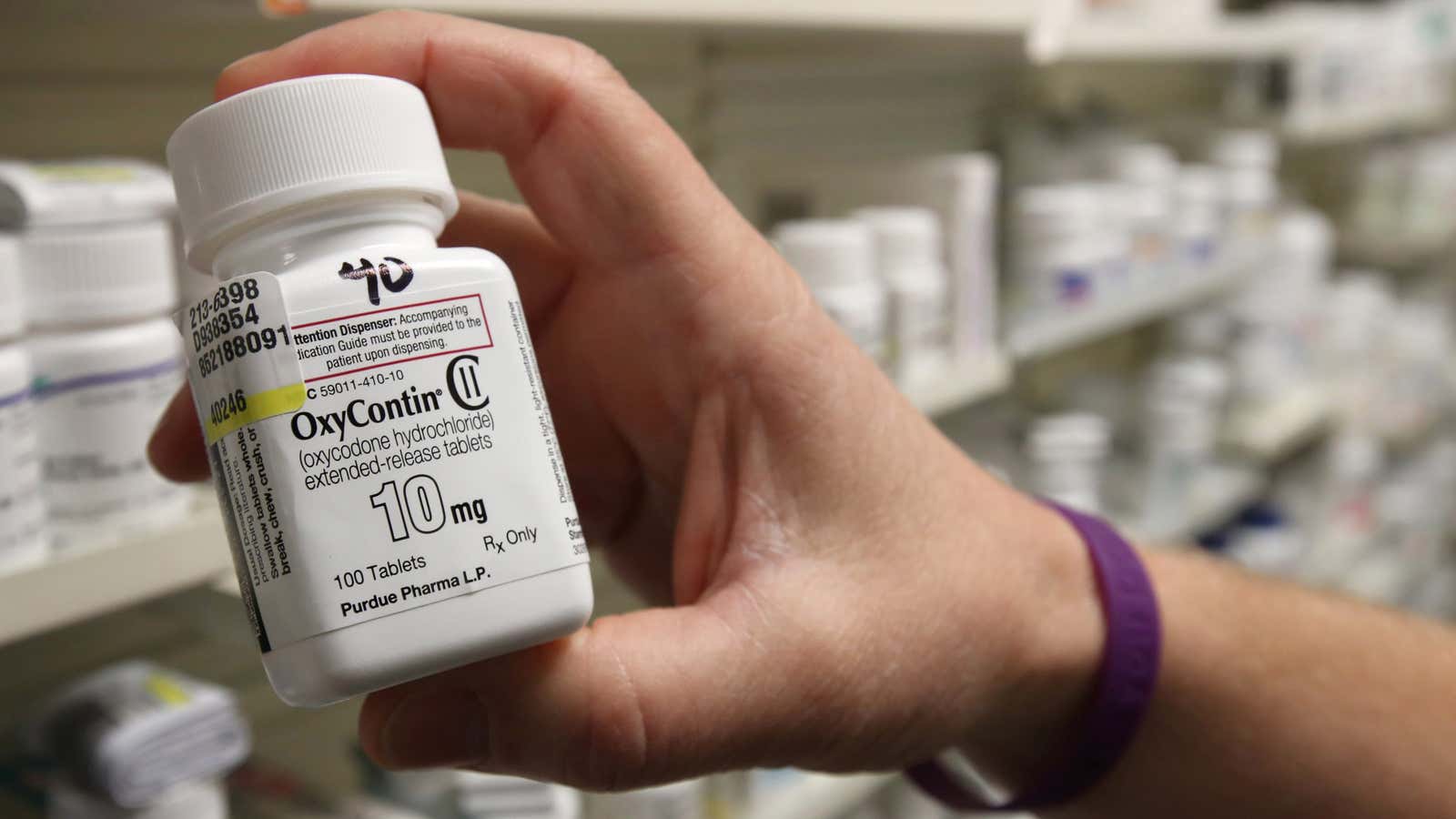Members of the Sackler family agreed to pay $6 billion to US states and local governments for their role in the opioid crisis. The Sacklers own Purdue Pharma, which manufactures the blockbuster opioid drug OxyContin. As part of the deal, family members will give up the company, which will be turned into a new firm called Knoa Pharma that will focus on fighting the crisis. The deal must be approved before the plan takes effect; a judge is set to review it March 9.
Sackler family members said in a statement that OxyContin, a highly addictive opioid painkiller, “brought grief and loss to far too many families and communities,” but stopped short of admitting wrongdoing. Victims will have the opportunity to address the Sackler family via videoconference.
The settlement is likely the last for the Sacklers, as it shields them of any current and future civil lawsuits. Purdue filed for bankruptcy in 2019 to settle thousands of lawsuits it was facing for marketing and selling opioids to the public. This most recent deal, reached with attorneys general from eight states and the District of Columbia, follows a previous $4.5 billion settlement that was rejected by a federal judge in December.
How the settlement compares to the cost of the opioid crisis
While the settlement will help support communities and individuals dealing with addiction and recovery, it represents a fraction of the revenue OxyContin brought to Purdue Pharma, and the sum the Sacklers withdrew from their company between 2008 and 2017.
Purdue pled guilty for misleading regulators, doctors, and patients about OxyContin’s risk for abuse in 2008, and agreed to pay $600 million. It also reached a $8 billion settlement in 2020 to resolve a Justice Department probe into its role fueling the opioid crisis.
This isn’t the only settlement that shows the discrepancy between the damage caused by opioids and the price paid by opioid makers. On Feb. 25 a settlement (pdf) was reached between the drug distributors AmerisourceBergen, Cardinal Health, and McKesson, Johnson & Johnson and communities affected by the opioid crisis. The $26 billion agreement was hailed as a success, and the money will help tackle a crisis that is only getting worse.
But $26 billion is just a drop in the ocean of economic damage of the opioid epidemic. An estimate from the Centers for Disease Control and Prevention found that in 2017 alone, it cost the US economy $1 trillion.
